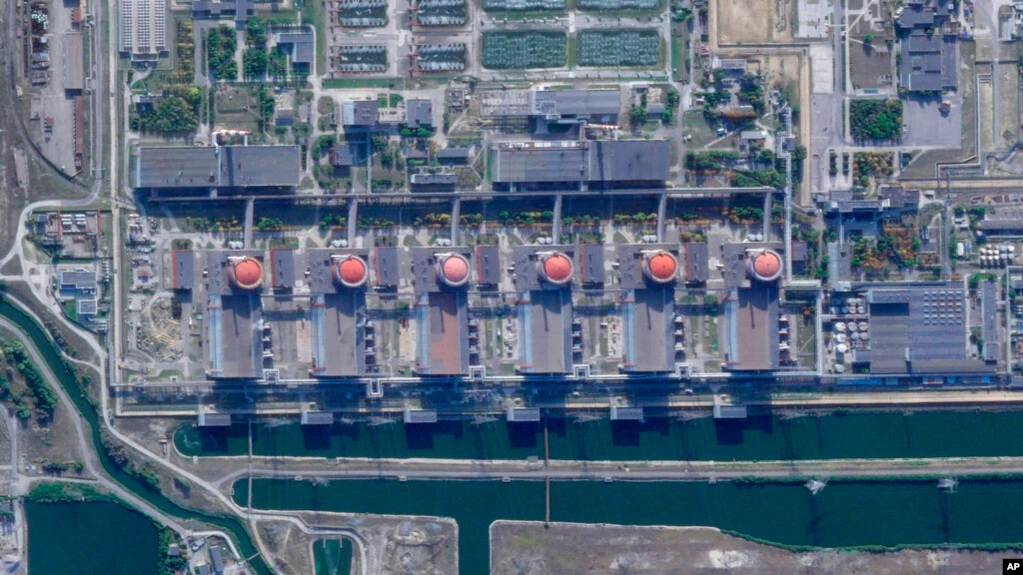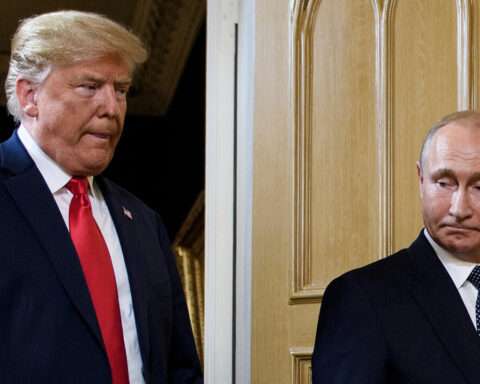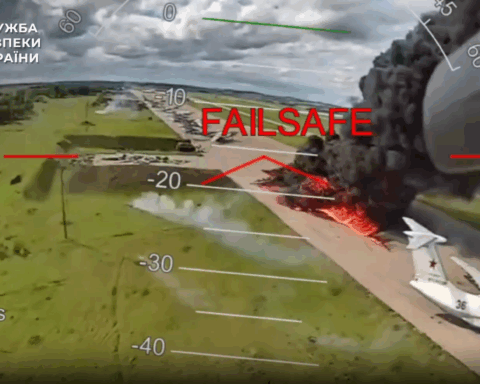The Zaporizhzhia nuclear power plant lost connection to its last main external power line Saturday, according to a statement from the U.N.’s nuclear watchdog, but the plant could still send electricity to the grid via a reserve line.
The plant’s senior Ukrainian staff told the International Atomic Energy Agency experts who stayed behind after their inspection this week that the fourth and last of the plant’s operational lines was down due to shelling Friday night.
IAEA Director-General Rafael Grossi said Friday that it appeared the power supply to the plant was being deliberately targeted.
“It is clear that those who have these military aims know very well that the way to cripple or to do more damage is not to look into the reactors, which are enormously sturdy and robust,” he said, according to The New York Times. Instead, the power lines that are essential to run the plant are being targeted.
The plant, which has six reactors, has only one operating. The staff disconnected Unit 5 because of electrical grid restrictions, according to the IAEA statement. The remaining reactor is producing electricity for cooling and other essential safety functions at the site and for households, factories and others through the grid.
Russian forces seized the plant soon after the February invasion of Ukraine, but the Ukrainian staff continues to operate it. A team of IAEA inspectors was allowed into the plant this week and maintain a presence there to help secure the site. Grossi said their presence at the site is “a game changer.”
On Saturday, Russia’s defense ministry accused Ukraine of attempting to recapture the plant.
The ministry said a naval force with more than 250 Ukrainian troops tried to land on the bank of the Kakhovka reservoir near the plant Friday night. The attempt was called off after strikes from Russian military helicopters and fighter jets destroyed 20 Ukrainian vessels, the ministry said.
Both Reuters and The Associated Press reported Russia’s claims but said they could not be independently verified.
Also, Kremlin-backed local authorities blamed Ukraine for the shelling Friday night that took down the plant’s last power line and said that was why the plant had stopped supplying electricity to Ukrainian-held areas.

“The provision of electricity to the territories controlled by Ukraine has been suspended due to technical difficulties,” the municipal administration in Enerhodar, where the Zaporizhzhia plant is located, said a post on its official Telegram channel.
Ukraine and Russia have blamed each other for shelling at and near the plant.
The British military confirmed in its regular update Saturday morning that Ukrainian forces were conducting “renewed offensive operations” in the south of Ukraine, advancing along a broad front west of the Dnieper and focusing on three areas within the Russian-occupied Kherson region.
“The operation has limited immediate objectives, but Ukraine’s forces have likely achieved a degree of tactical surprise; exploiting poor logistics, administration and leadership in the Russian armed forces,” the ministry tweeted.
Energy battle
As an energy battle between Russia and the West over the war in Ukraine intensifies, a top European Union leader said Saturday that Europe is “well prepared” if Russia decides to stop all gas deliveries.
“We are well prepared to resist Russia’s extreme use of the gas weapon,” EU Economy Commissioner Paolo Gentiloni told reporters on the sidelines of an economic forum in Italy. “We are not afraid of [Russian President Vladimir] Putin’s decisions, we are asking the Russians to respect contracts, but if they don’t, we are ready to react.”
Gentiloni’s remarks came on the heels of Moscow’s decision Friday to delay the reopening of its main gas pipeline to Germany. Russia apparently was reacting to the Group of Seven countries’ agreement to cap the price of Russian oil exports, limiting Moscow’s profits.
Gentiloni said that gas storage in the EU “is currently at about 80%, thanks to the diversification of supplies,” although the situation varies in each country.
Russian energy giant Gazprom said it could not resume the supply of natural gas to Germany, just hours before it was set to restart deliveries through the Nord Stream 1 pipeline. Russia blamed a technical fault in the pipeline for the move.
Some information came from The Associated Press, Agence France-Presse and Reuters.






